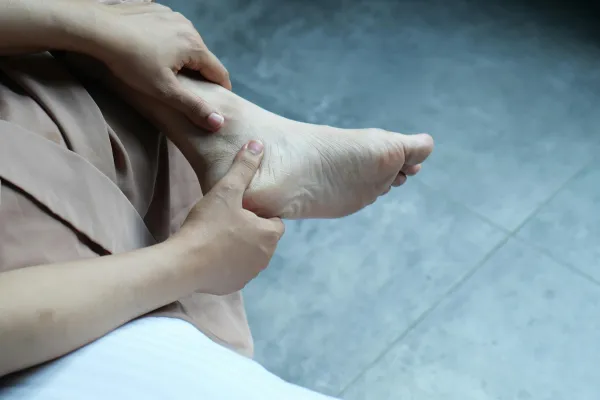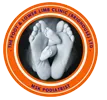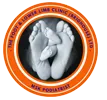
Adult-Onset Flatfoot: Why Your Arch Is Disappearing – and What Helps
Have you looked down at your feet lately and thought, “Hang on... where did my arches go?”
If your once-normal arches seem to be flattening as you get older, you’re not imagining it. It’s a condition called adult-onset flatfoot, and it affects more people than you might think—especially after the age of 40.
At The Foot & Lower Limb Clinic, we often see patients who come in thinking they’ve just got tired feet or ankle pain. But when we take a closer look, it’s clear their arches have dropped, and their foot structure has changed.
What is Adult-Onset Flatfoot?
Adult-onset flatfoot (also known as posterior tibial tendon dysfunction, or PTTD) happens when the tendon that supports your arch becomes weakened or damaged over time. This causes the arch of your foot to slowly collapse.
Unlike flat feet you’re born with, adult-onset flatfoot develops later in life—often in your 40s, 50s, or beyond.
Common Signs of Adult-Onset Flatfoot
It doesn’t always start with pain in your arch. Here are some things to watch for:
Your foot looks flatter than it used to
You feel pain or swelling around your inner ankle
It’s harder to walk or stand for long periods
Your shoes wear out unevenly
Your feet roll inwards (overpronation)
Your toes start to point outward more than usual
The changes might start slowly, but over time they can affect how you walk—and even cause knee, hip, or back pain if left untreated.
What Causes It?
There isn’t always one clear reason, but a few things can increase your risk:
Ageing – tendons naturally weaken over time
Weight gain – puts more pressure on your feet
Previous injuries – ankle sprains or fractures can affect tendon strength
Health conditions – like arthritis or diabetes
Wearing unsupportive shoes – especially for long periods
Even if you’ve always had strong arches, these factors can slowly change the way your foot works.
Why Ignoring It Makes Things Worse
When your arches collapse, your feet stop absorbing shock the way they’re meant to. This puts strain on other parts of the body and can lead to:
Ongoing foot and ankle pain
Tendon damage that becomes harder to treat
Poor posture
Trouble walking or standing without discomfort
That’s why it’s important to get help early—even if it seems like “just a bit of arch pain” right now.
What Can Help?
The good news is, there are ways to manage adult-onset flatfoot and stop it from getting worse.
Here’s what we recommend:
1. Supportive Footwear
Swap out flimsy shoes for ones with good arch support and a firm heel. Your feet need a stable base.
2. Custom Orthotics
These are specially made inserts that go inside your shoes. They support your arch, improve alignment, and reduce strain on the tendon.
3. Stretching and Strengthening
Certain exercises help support the arch and ankle. Think calf stretches, heel raises, and resistance band work.
4. Weight Management
Losing even a small amount of weight can take pressure off your feet and slow the progression of flatfoot.
5. Hands-On Treatments
At our clinic, we offer things like manual therapy, taping, and even laser treatments to reduce inflammation and support healing.
6. Surgery (in severe cases)
Most people don’t need surgery, but in advanced cases where pain and deformity are severe, it might be considered as a last resort.
What We Can Do at the Clinic
If you’re noticing changes in your arches—or foot pain that just isn’t going away—we can help. Using tools like 3D gait analysis, muscle testing, and detailed assessments, we’ll figure out exactly what’s happening and create a tailored plan to support your feet.
Many of our patients find that with the right support, they’re able to walk comfortably again—without constant aches and worries.
Don’t Let Flat Feet Flatten Your Day
Your feet are your foundation. When your arches collapse, it affects everything from your posture to your comfort.


